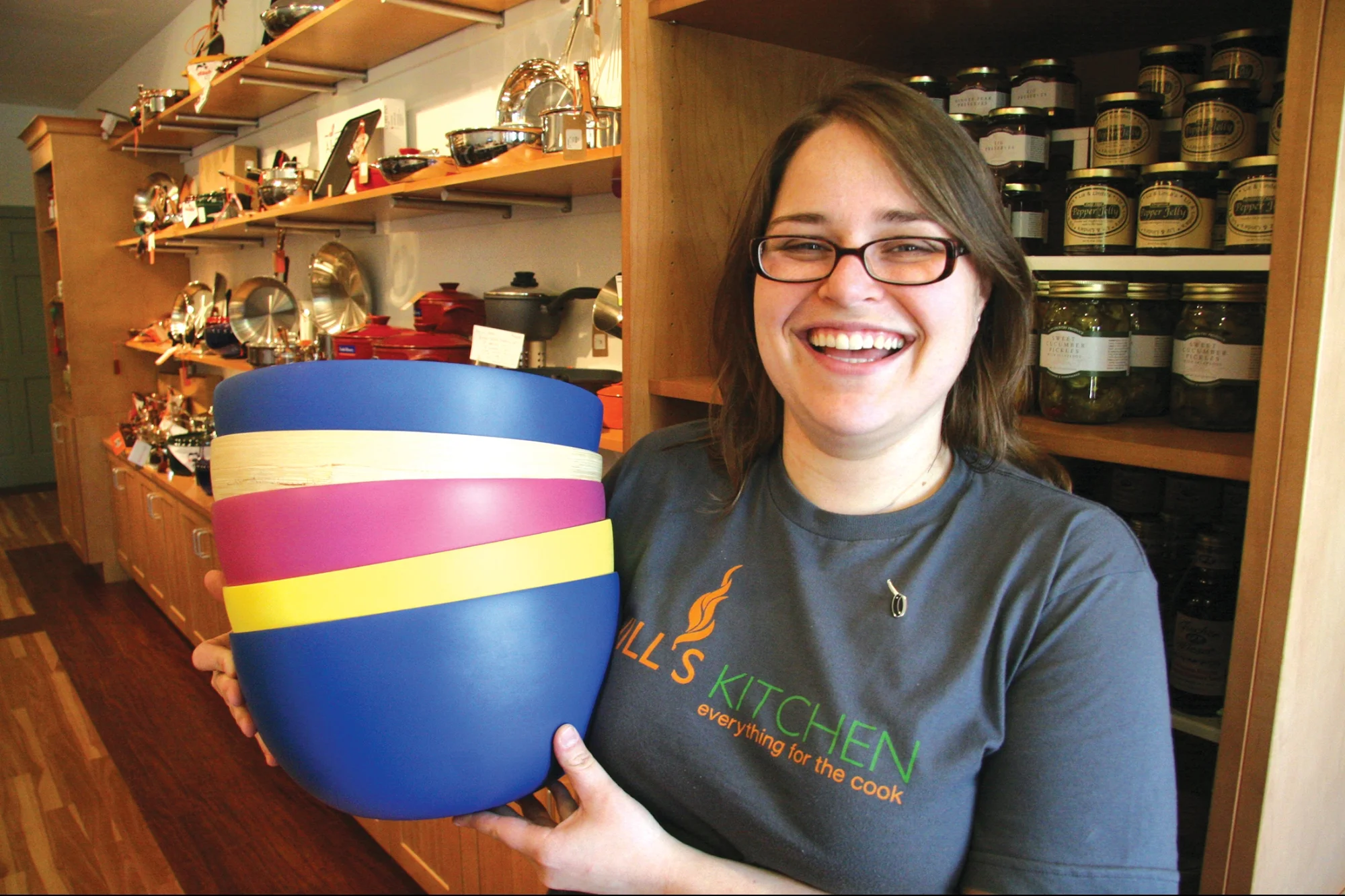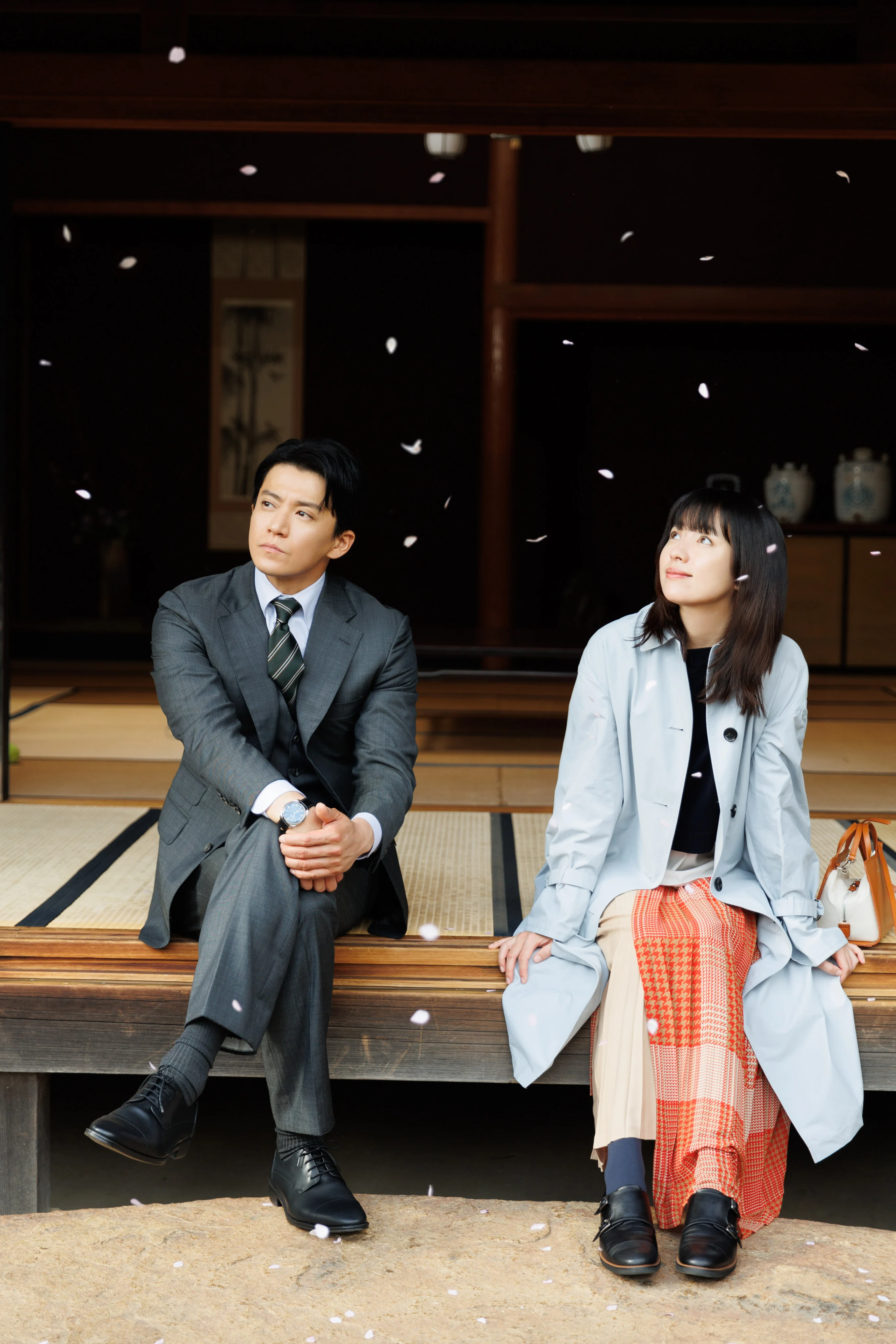
After I graduated from college, I ran a bookstore on Capitol Hill in Washington, D.C., and that is where I learned to love community-based retail.
Running a local shop is special. It has heart. It is a place of continuity and communion. People know you, and you are not just a random person behind the cash register. The shop is you. You are always around, and you are as focused on building relationships in the community as you are on selling products. I loved it.
After running the bookstore for three years, I decided I wanted to get out of the book business. I still wanted to stay in local retail, however. To figure out my next move, I asked myself, “What do I love to do?” And the answer was: I love to cook. Then I asked myself, “What do I have to leave the neighborhood to buy?” And the answer was: cooking supplies. That was the beginning of Hill’s Kitchen. In the spring of 2006, I went to my first trade show. Soon after, my family and I bought and renovated a building — also in Capitol Hill — and I opened my doors in the spring of 2008.
Related: What to Know About Selling Your Business
Part of the fun of a local store is the ever-changing inventory and, as the person running the store, adjusting to what the customer is hunting for. From the beginning, we were a full kitchen store — but we had hardly any dish towels, only two brands of knives, and we did not sell any cocktail napkins. As I experimented with products, played with the displays, and talked to customers, the store evolved. By the end, I was selling hundreds of styles of towels, and people were coming in to buy 20 packages of cocktail napkins at a time. I loved the trial and error.
Hill’s Kitchen was a success. It made enough money for me to live in the neighborhood, and I was able to provide a service that the community wanted and needed. But it was hard. Employees were a challenge, for instance. I had wonderful people whom I trusted completely, but the store was never their priority. They’d stay for six months, or maybe a year, but they never really wanted much responsibility and would end up leaving. In time, I came to rely less and less on having employees, instead doing everything myself. And honestly, if you are a small business owner and you don’t have to pay somebody for a couple hours, that’s great. But it also meant that I was there every single day. The store was open six days a week — except for November and December, when it was open seven days a week. And the day the store was closed was still a busy workday, just without customers. Meeting friends for dinner was hard. So was finding time for doctor’s appointments. I never took vacations. I was always in the store.
I started to burn out around 2019. I loved Hill’s Kitchen; it was going great, and I had a purpose in my days. But it was a set of golden handcuffs. I told myself that I’d leave the store once I figured out what I was going to do next. But I could never figure out what I was going to do next. I was always in the store.
When COVID hit, running the store got much harder. Like so many businesses, I had to completely reinvent how we operated over and over again, because the rules kept changing. It was brutal. Worse, my peers suddenly had more flexibility in their lives. The work-from-home culture really did a number on me. All of a sudden, people were choosing the 5 p.m. dinner reservation, and I could never go. I was watching everybody else be able to say, “I am going to go work from the mountains for a month.” All I could think was, Great, I’ll just be at the store working every day, all day long.
By the spring of 2024, I was fried. As an experiment to see how I felt about the store, I decided to close three days a week. I called it “summer hours.” I went away, and did things, and saw people, and spent time at home doing nothing. It really shined a light on what I had been missing all this time. I realized quickly that I needed to change my life. It was incredibly hard to admit that. I still choke up thinking about it. For 17 years, the store was who I am. It was my whole identity. And although I loved it, and I loved the community that it gave me, I was doing everything for other people. It brought me joy, but at the expense of myself. I wanted more than the store, and I had to step away.
Related: I Wish I Knew These Things Before Selling My Company
I had three options. One was to find a manager to run the store. There was a case to be made for that. But for me, the joy of a small business is interacting with people. I knew that I was not going to be able to let somebody run the business halfway. I’d still be in there all the time. The other options were more definitive: I could close it or sell it. In the end, I decided to sell.
I reached out to local business brokers, and we ended up working with someone who specialized in selling restaurants. We put both the building and the business up for sale together, and the broker started reaching out to prospective buyers. I was picky. I wanted to find someone who actually wanted to run the business — someone who was excited about the same things that I was excited about: the store being part of the community, interacting with the customers, and utilizing the space. In the end, we sold to a group of former restaurant workers who loved the cooking world but didn’t love restaurant hours.
We agreed to a deal this past January, and it took until June to close. Part of the deal was that I would stick around for a couple of weeks to help them get things up and running. They opened in July. And as much as I am eager and willing to offer advice, they rightfully are figuring it out on their own and do not need to listen to me. Someone likened my role to being a mother-in-law: Say something once, and then shut up.
Honestly, that has been freeing — because it is no longer my store. They are making Hill’s Kitchen what they want to make of it, and they are going to sell what they want to sell. It’s not Leah’s-Hill’s-Kitchen-without-Leah. It is a different thing, and that is wonderful. I am thrilled that the business can live beyond me. But it is also a little strange that it can live beyond me.
These days, I am incredibly busy trying to figure out what you do in a day. What do other people do? I honestly don’t know. Since college, I’ve never had a weekend off. People tell me about this thing called “brunch,” so I’m looking into brunch. I sit in coffee shops a lot. I went to a museum in the middle of the day last week. But simple decisions are paralyzing. I wore a uniform for 17 years, and now I have to choose what clothes to wear every morning. Here I am in my mid-40s, and I feel like I am doing what people did in their 20s.
But I have no doubt that selling was the right move. I feel so lucky that we found these wonderful people to continue the store. And they are excited about it. They want to do it, and I feel great about that. But how do I feel emotionally? I am absolutely beyond terrified. But that is the future, not the past.



